
Ahead of his headline London show in October, musician Sid Sriram sat down to speak with the Tamil Guardian about how he grew to embrace his identity, recall midnight recording sessions with A R Rahman and his deep love for the Eelam Tamil community worldwide.
Ahead of his headline London show in October, musician Sid Sriram sat down to speak with the Tamil Guardian about how he grew to embrace his identity, recall midnight recording sessions with A R Rahman and his deep love for the Eelam Tamil community worldwide.
_____
“I'm here in London because of the community, you know what I mean?” says Sid Sriram, from his hotel room in London.
The hit singer, producer and songwriter has taken the South Indian music industry by storm over the last decade. A multi-award winner, Sriram’s soothing vocals have won him fans from across the globe. And as he returns to London to perform for only the second time next month, he remains acutely aware that there is a community of Eelam Tamils in the British capital that is making the show possible.
“I mean, in so many of the cities I pull up to my fan base is primarily [Eelam Tamil],” he says. “I don't even like to use the words fans anymore, but just like the supporters of my music and the family that we've kind of fostered is the community.”
“So, I'm a big supporter and big respect for sure.”
'Respect, love and camaraderie'
Sriram speaks fondly about all his fans but singles out Eelam Tamils in particular for their longstanding support on his musical journey.
“Like I said before the Eelam community, it has been [there] from day one, I think even before I had music coming out in films,” he adds.
“A lot of folks from the community have been supporting me from like 2010-11,” he continues. “I'm always super cognizant of the fact that that support and acceptance, more than anything else, embracing me, is what has allowed me to pull up to London and do a show in front of 20,000 people. And that's never lost on me.”
“I feel like some of the conversations I've had with people from the Tamil community have been something like the deepest, just like most heartfelt conversations as well. So, forget the music and all that, but just on the human level, there's, I feel, a deep sense of respect and love and camaraderie.”
That connection Sriram speaks of is clear in his heartfelt performances in cities with large Eelam Tamil populations. It even led the singer to dedicate two songs to his “Tamil Eelam fam” during a performance in Toronto last year.
“We did ‘Oru Deivam Thantha Poove’ and ‘Unthan Desathin Kural’,” he recalls. The former is from the film Kannathil Muthamittal, a movie based around the Tamil Eelam struggle, whilst the latter is a poignant A R Rahman-composed classic on displacement and the Tamil yearning for a motherland.
“Those were the two specific songs that I dedicated,” Sriram continues, stating he included them to “extend a deep sense of love”.
“I think the mood when those songs come on, or when we perform those songs, there's just this feeling of… it feels profound, honestly, man.”
“There's a sense of heaviness, but then it's also very beautiful. I will never know that specific experience. I was born in India. I can't ever say that I can feel what has been felt. But as a figure who has been embraced by the community, and who sings Tamil music, I feel that it's not my responsibility, because it doesn't feel like a responsibility, but it just feels like it flows so naturally. And I'm grateful.”

Grappling with identity
The Chennai-born and California-raised artist also finds those ties to his audiences in the West are unique not just because they are largely Eelam Tamil, but also due to the “deep overlap and shared experience culturally”.
“In terms of like the fact that I grew up listening to A R Rahman music deeply, but also the first CD that I bought was 50 Cent’s Get Rich or Die Trying album.”
“I was talking to someone yesterday… where we were just talking about how we both love Jay Z’s Black Album. And then that person also has had time spent with Carnatic music, you know what I mean?”
“Not to say I don't like doing shows in other places. I love performing in Chennai because that feels like hometown. But there's something really special about having some of the same cultural cues on both sides when I come to some of these Western-leaning countries.”
This fusion of cultures and sounds shines through Sriram’s music, blending traditional Carnatic vocals with soulful R&B tones. It is a niche sound that is a result of his upbringing, infusing both his Tamil and American identities together, and one he has learnt to embrace growing up.
“I think my whole life, even before my professional career started, has been an exercise in first, grappling with what I thought were multiple identities within myself.”
“I was born in Chennai, but grew up in the States,” he continues. “And then as I grew older, realizing that there are no multiple identities. It's a single identity with a really beautiful and broad spectrum.”

Did he ever feel any tension between his Tamil-ness and American-ness?
“I felt that way when I was younger,” he admits. “I used to feel like I had to code switch a lot and really kind of figure out in which space I presented a certain way. And I feel like that was doing a disservice to the various roots of my identity.”
“I've been really lucky because music is a direct manifestation of my journey with identity. It's been so from the beginning. I remember I used to feel most myself when I was at home practising Carnatic music. I'd like have a weird day at school, like fourth, or fifth grade, for whatever reason, come back home, sit down and practice, and subconsciously, just enter the space of what felt like transcendence. For the longest time, Carnatic music specifically, was the mechanism that I used to embrace myself.”
“As I got older and I went to college that's when I started writing my own music and getting exposed to various forms of music. I would still have those moments in the practice rooms at Berkeley College of Music, where I went to. But then I would be in another space, and I would kind of distance myself from Carnatic music, in a way. Just try to highlight the more R&B and Soul and whatever I was doing. It even manifested in the way I dressed and everything.”
“But in the last decade, I've just been able to - not even develop - but dig deep and find who I am.”
“There's no need to build silos within oneself and just think that you have to exist in one in a certain context, and then jump into another for another. It's just one person. I'm one human being with a very complex and… kaleidoscopic experience. On any given day, the way the sun hits me, I might feel a certain way, but it's always going to be the same human being.”
“It's really allowed me to… not have to present differently in any one room. I can just be Sid Sriram wherever I'm at.”
On Coachella and a growing non-Tamil audience
The journey of self-discovery that he has been on, mirrors many of his audiences around the world.
“I think that's probably the struggle that a lot of folks that come from immigrant identities, or people who are away from their motherland, or who have been born in another place but still have roots face,” he says.
But in embracing those different parts of his identity, Sriram has been able to propel his music and career to the global stage - including to non-Tamil crowds.

His NPR Music's Tiny Desk performance last year has racked up hundreds of thousands of views and this year, he became only the second Tamil artist to perform at Coachella (the first having been M.I.A.).
“It was fire man,” he recalls, as he described ending his festival set with Thiruppugazh, an anthology of religious songs dedicated to Lord Murugan. “It was, I would say, 80% non-Brown folks in there.”
“It just went silent when I started that piece. And it was such a special moment because I didn't realize it then.”
“The next day, my brother sent me the video clip… I watched it, and that's where it really hit me. Not a responsibility, but I feel like I'm an ambassador of where I'm from and what I represent and the roots that I come from.”
“That moment just felt like such a powerful and beautiful moment to affirm that. To see these folks who have no context as to what I was singing language-wise or sonically, just really take it in and let the music wash over them.”
“I think for me [that] was a reference point of what my path is moving forward and what I want to do. The last 10-12, years of my life and my career have been specific paths, and I feel like, right now I'm in a point of inflection.”
“I want to take my music and spread it across the world. I already know that my community and the communities that support me are going to be at the foundational level, always lifting me up. And now it's time for me to take this music and spread it globally.”

Midnight recording sessions with A R Rahman
Even as he tours and creates solo projects – such as his all-English album Sidharth released last year – Sriram continues to perform tirelessly in the South Indian movie industry, singing for several hit releases this year alone.
Over the last decade, he has worked with legendary figures including Anirudh Ravichander, and D. Imman. His experiences with A.R. Rahman, the Oscar and Grammy-winning composer, however, stand out, with Sriram referring to the artist as his “mentor and guru”.
“I think one of the most memorable points was when we recorded at ‘Ennodu Nee Irundhaal’,” says Sriram. “I had just performed with him for like this private event, and then we went right to the studio afterwards. So it was like, maybe midnight or so, but he had recorded like, a scratch track for the song, which sounded incredible.”
“So I was listening to that and he's like, ‘Oh, I want you to sing this’. But it's a really high song and I was listening to it and was like, ‘is it possible to maybe bring it down a half step?’. He's like, ‘no, no, you can do it, it's fine’.”
“He was very nonchalant about it. But I went into the studio, and his studio feels like a place of worship. It has such a deep energy in it. That room that we recorded in has been intact for a long time now. So lots of energy has come and gone and stuck around in there, and it feels really special.”
“We started the recording, and it was this beautiful back and forth where he would just throw an idea at me in real-time. I’d try it, he’d tweak it slightly, and have me try it again. It was like a conversation almost, where I was definitely receiving the information and reacting to it, and he was throwing information out musically.”
“Those recordings with him are always so exciting because there's not a moment where you can get complacent or anything. You’re just constantly at it. And we know the results that come from that.”
“That recording specifically was such a magical night. Shankar Sir, the director, was there, Kabilan Sir, the lyricist was there. We started at one and probably went until like six in the morning. I got to take a 15-minute little nap at some point because they had to record something else. Went back in, and we recorded like 80% of the song that time.”
Those nights with A R Rahman are “always so special,” Sriram continues. “He has that energy about him where it's just like you get so instantly inspired.”

Advice for up-and-coming artists
As the Tamil music scene continues to grow, with a plethora of independent artists and a broad range of talent, Sriram acknowledges how this is an exciting time for the industry.
From his early SoundCloud tracks and YouTube videos, Sriram can relate to some of the struggles that young artists who are trying to make a name for themselves face in a hugely competitive and unforgiving industry.
What advice would he have to those up-and-coming musicians?
“Really spend the time, dig in with oneself, to find out what your sound is, or what your voice is,” he says. “And when I say voice, I don't mean like literally, but your whole perspective and ethos and spirit. What is you?”
“That takes a lot of soul searching, deep diving and just silence, spending time with yourself,” he adds. “Being successful and getting famous and having shit go viral online is all well and good, but at the end of the day, the reason we do what we do is to be able to take our highly specific, complex and beautiful perspective and give it to the world by way of music.”
“The second thing is just like the necessity for daily rigour. No matter what your art form is - whether you rap or you sing, or you come from this genre or that one, just daily work.
“I think that's what's really fared me well from the beginning to now. To this day, I practice for when I'm home for like, two to three hours a day, and when I'm travelling at least an hour, to make sure that the discovery never stops. I think that's really important.”
He tells us how he learned these lessons himself, after the release of Adiye in 2012. That was his first venture in Tamil cinema with A R Rahman and Sriram had hoped it would lead to instant success.
“I didn't get any phone calls, really,” he says. “Except for the one from A R (Rahman) Sir. Until 2016 people weren't hitting my phone like that. They didn't know what to do with my voice. I thought I was going to be an overnight celebrity, and that definitely did not happen.”
“But those four years really taught me to prioritize rigour, and surrendering to the music and letting that give me whatever answers I need.”

With a headline show at the O2 arena in London coming up next, Sriram says that it will be a celebration of his time in the music industry thus far.
It will be a step up from his only other London show at the Wembley Arena last year, one that he called “one of the most deeply joyful experiences that I have ever had performing”.
An even bigger audience is expected for October, where Sriram says he will be performing pieces that he has never performed with a live audience before.
“I perform on stage for like, three and a half hours, just my crew and my guys. We don't stop. From start to finish, just us."
"It’s really a testament to my belief and just the power of raw music,” he continues “Tapping into a certain spirit and giving that to people from a really sincere, genuine place and honest place."
“I believe that music can change the world,” Sriram adds. “I want to spread that message, as much as possible, and do whatever I can do through my art form to make people's lives better.”
“When I first entered the film industry and I had my first song, I was enamoured by celebrity and fame. That was a large factor in, like, what drove me, for sure. But as I've gotten older, and I've experienced that, and in tandem, had these deeply spiritual breakthroughs with music, I've come to the point where I don't think any of the extra stuff matters.”
“There's something that is really pure in what artists can do. I want to be an example of that.”

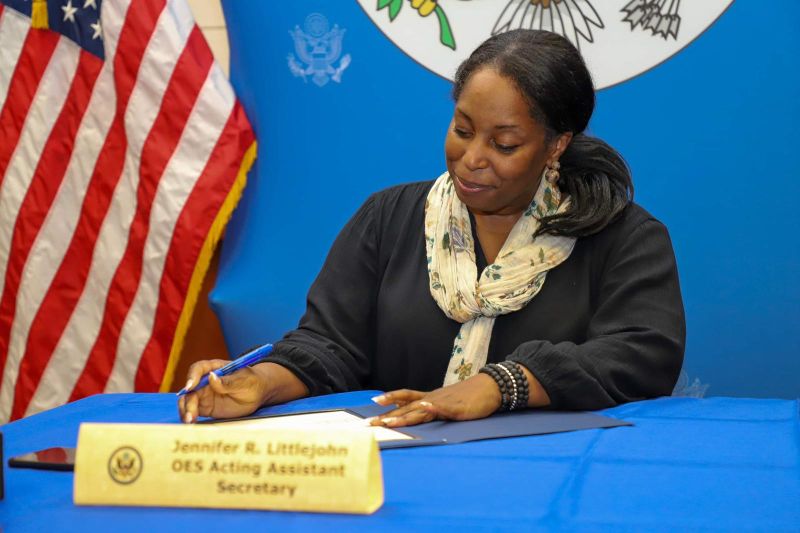

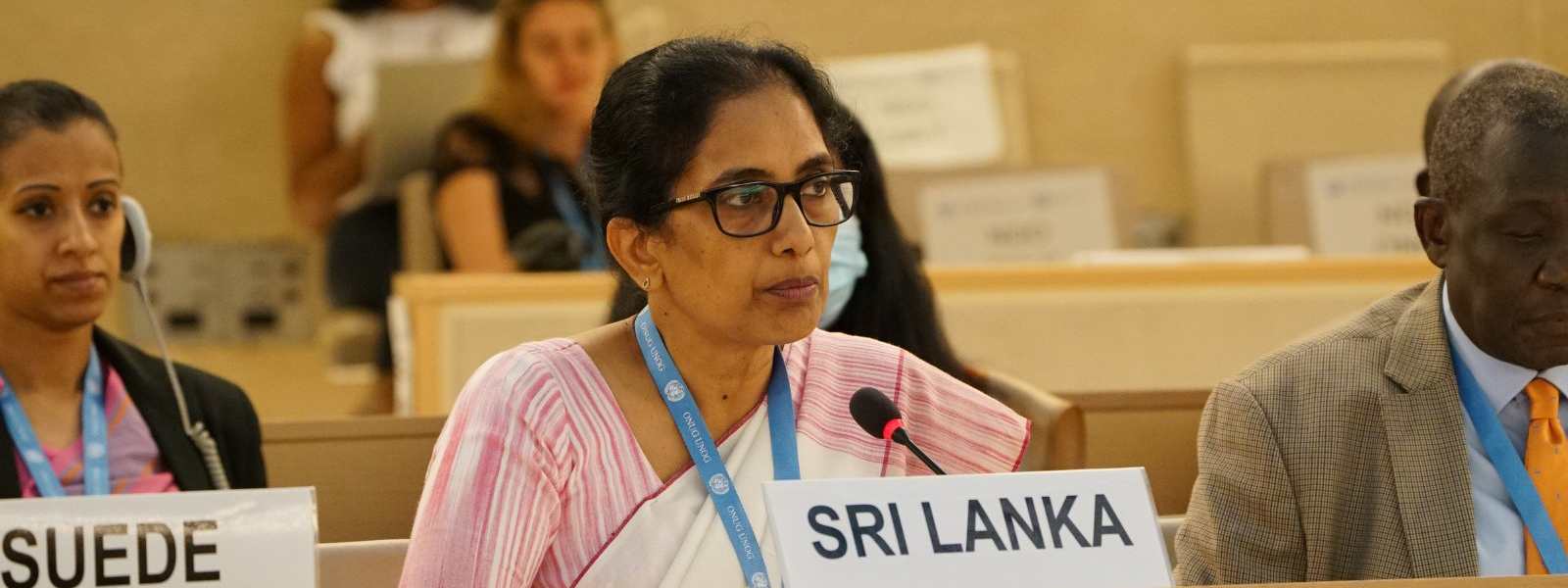









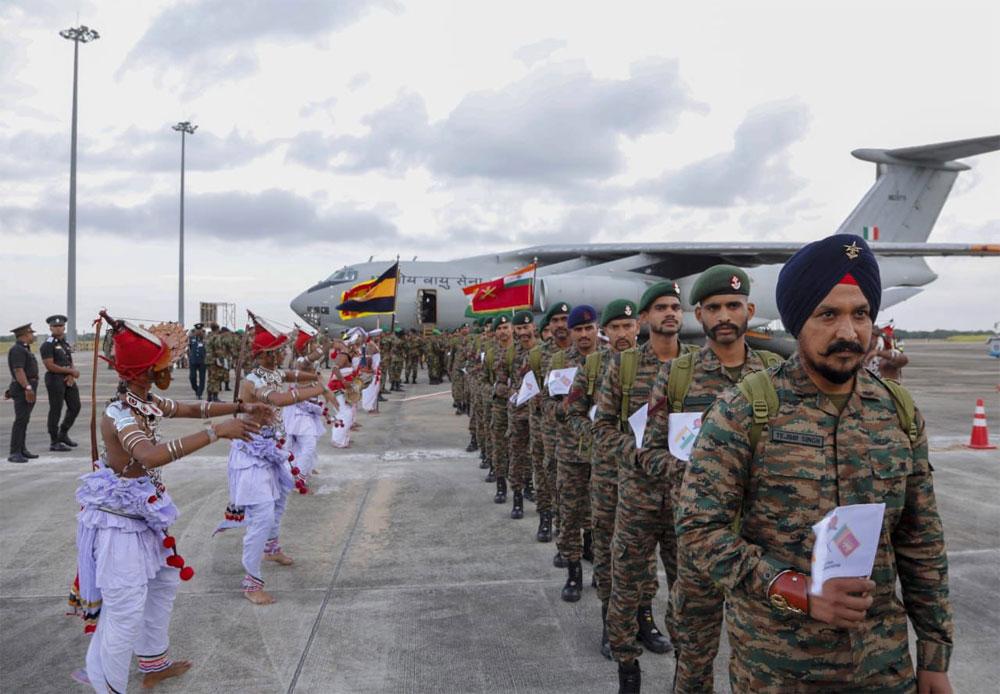


.JPG)
.JPG)
.JPG)

.jpg)
.jpg)

.jpg) Although it has been 15 years since the end of the armed conflict in Sri Lanka where particularly towards the end, tens of thousands of Tamils were reported enforced disappeared, the government-run Office of Missing Persons has once again resumed its fact-finding mission in Jaffna.
Although it has been 15 years since the end of the armed conflict in Sri Lanka where particularly towards the end, tens of thousands of Tamils were reported enforced disappeared, the government-run Office of Missing Persons has once again resumed its fact-finding mission in Jaffna. .jpg)
.jpg)
.jpg)
.jpg)

.jpg)
.jpg)
.jpg)
.jpg)

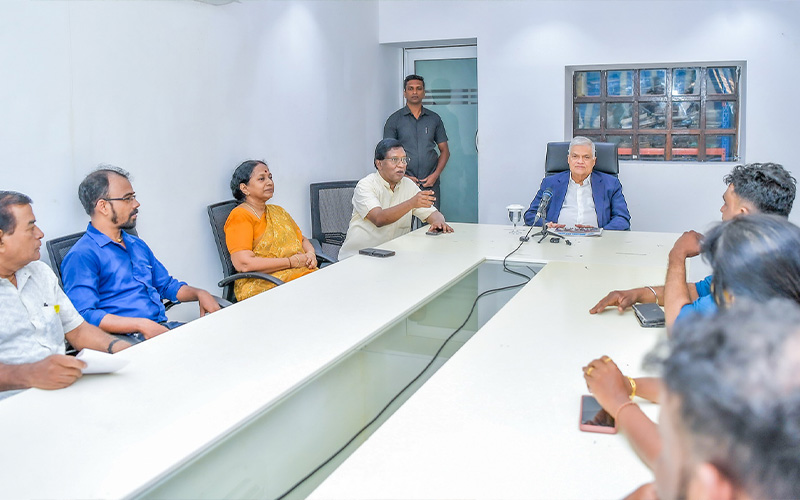
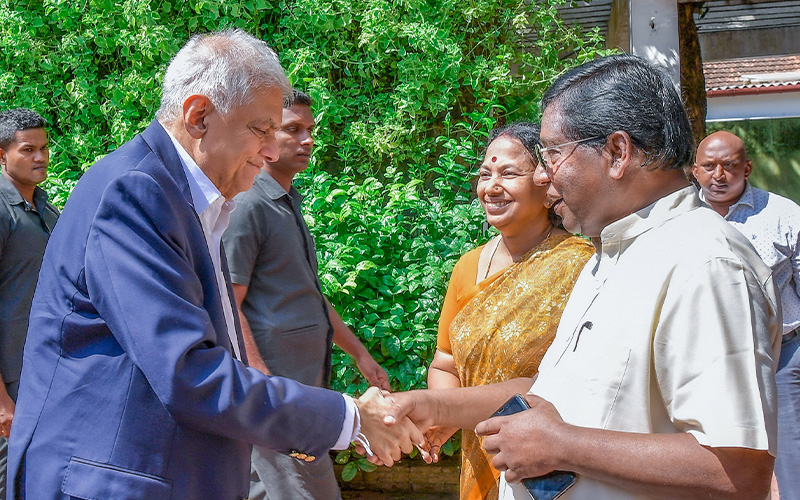
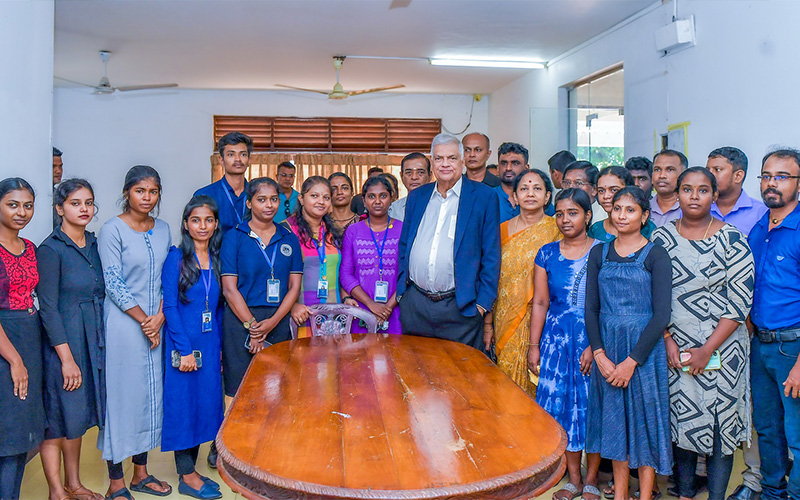



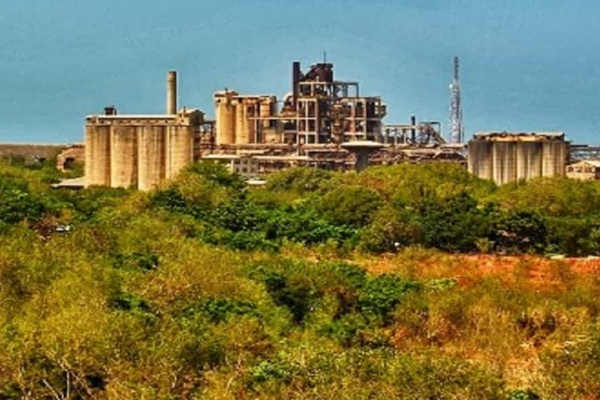

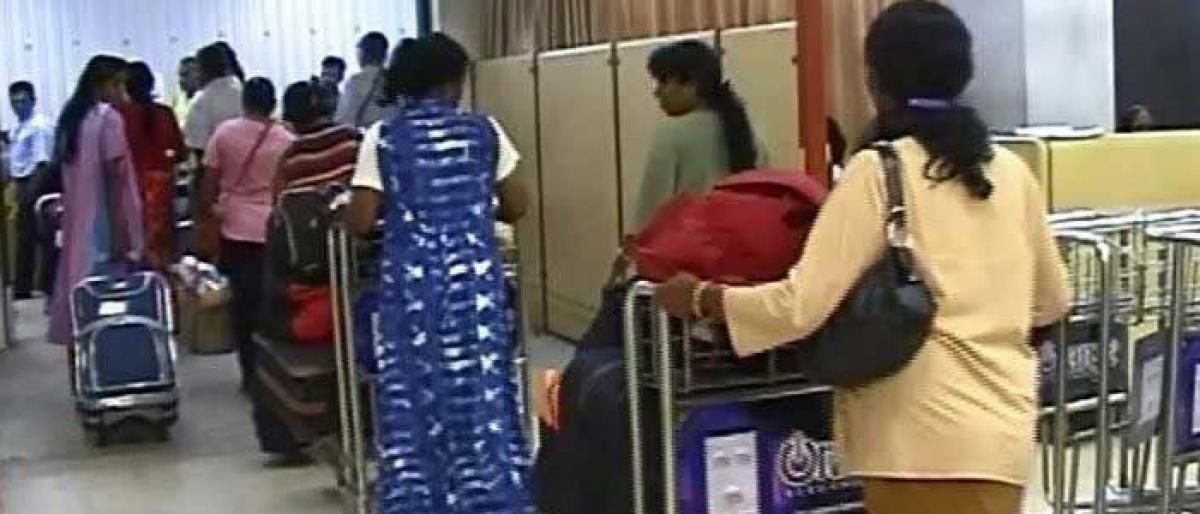

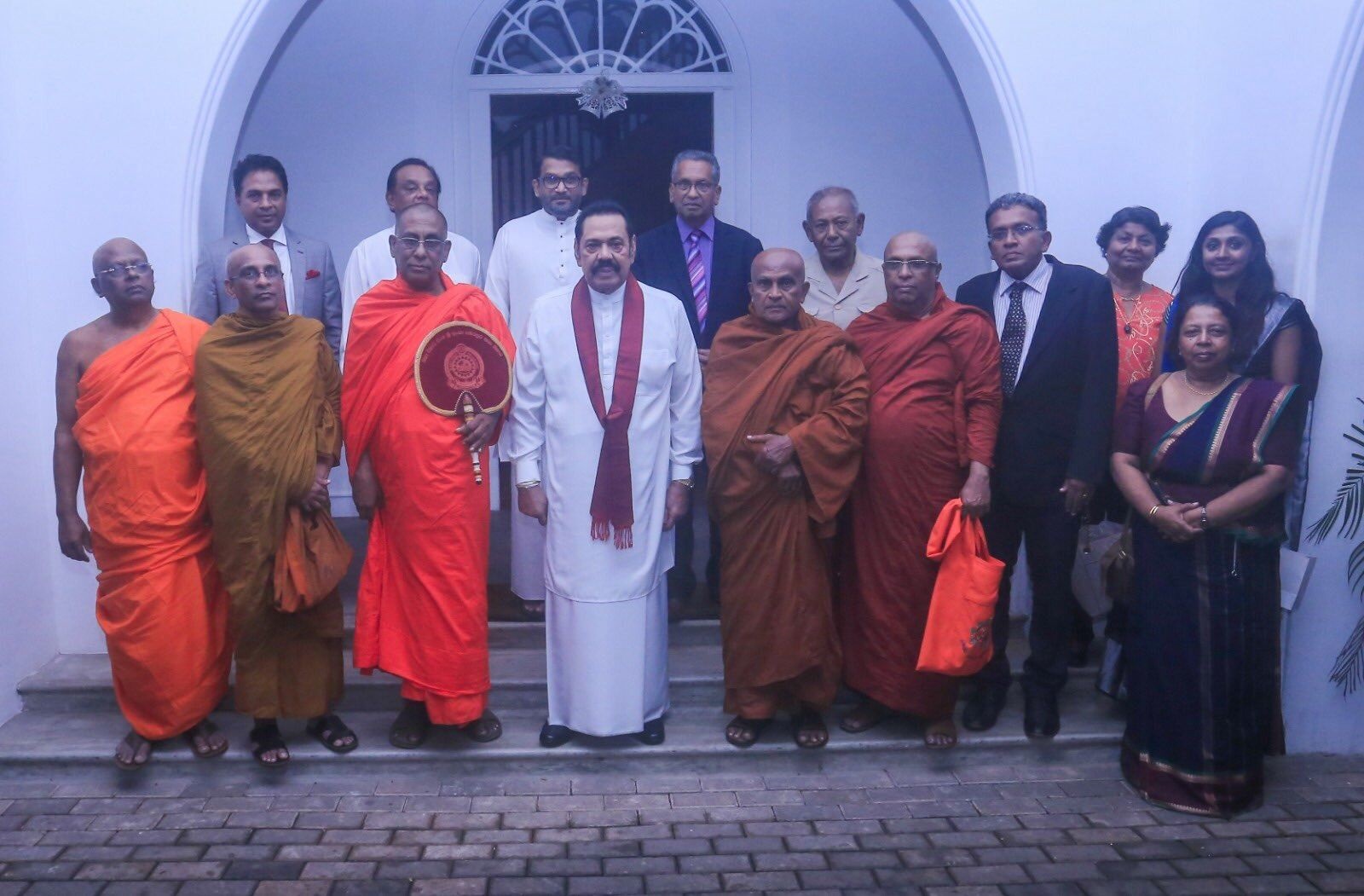

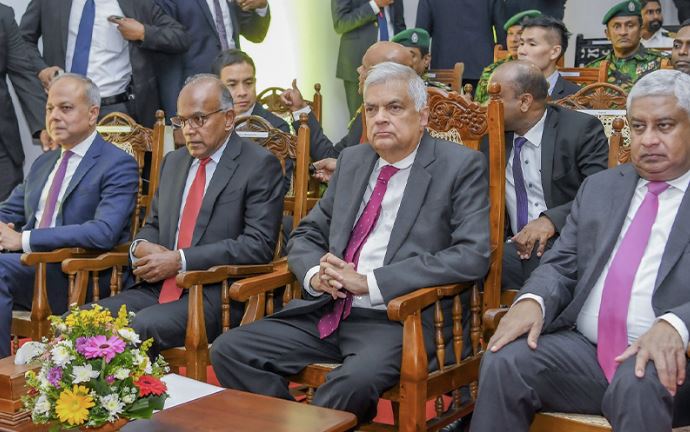
.jpg)
.jpg)